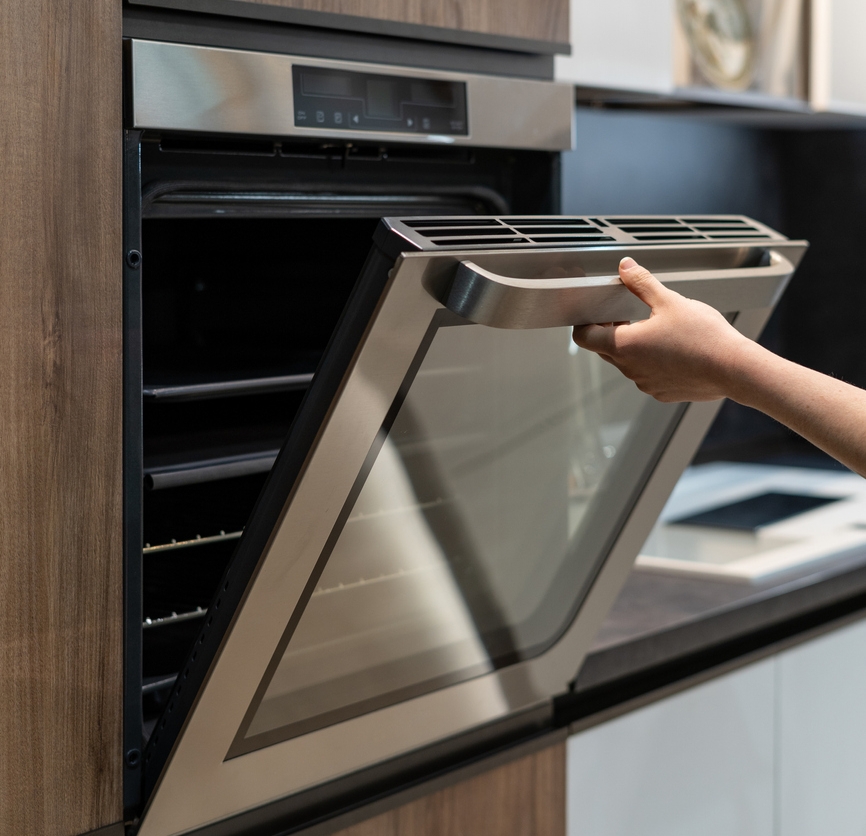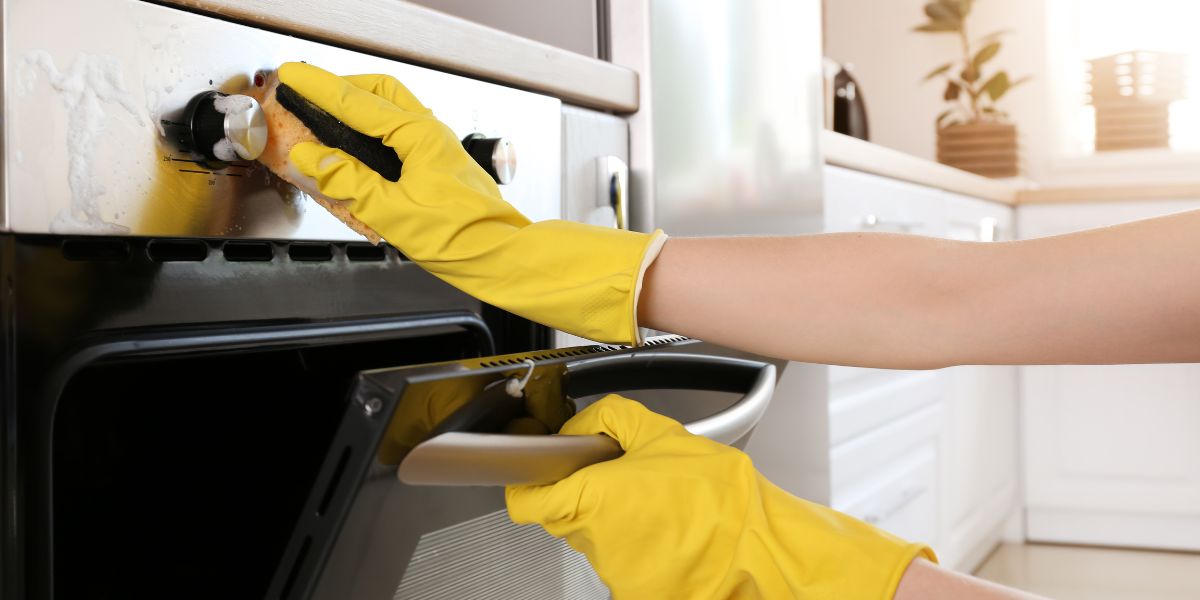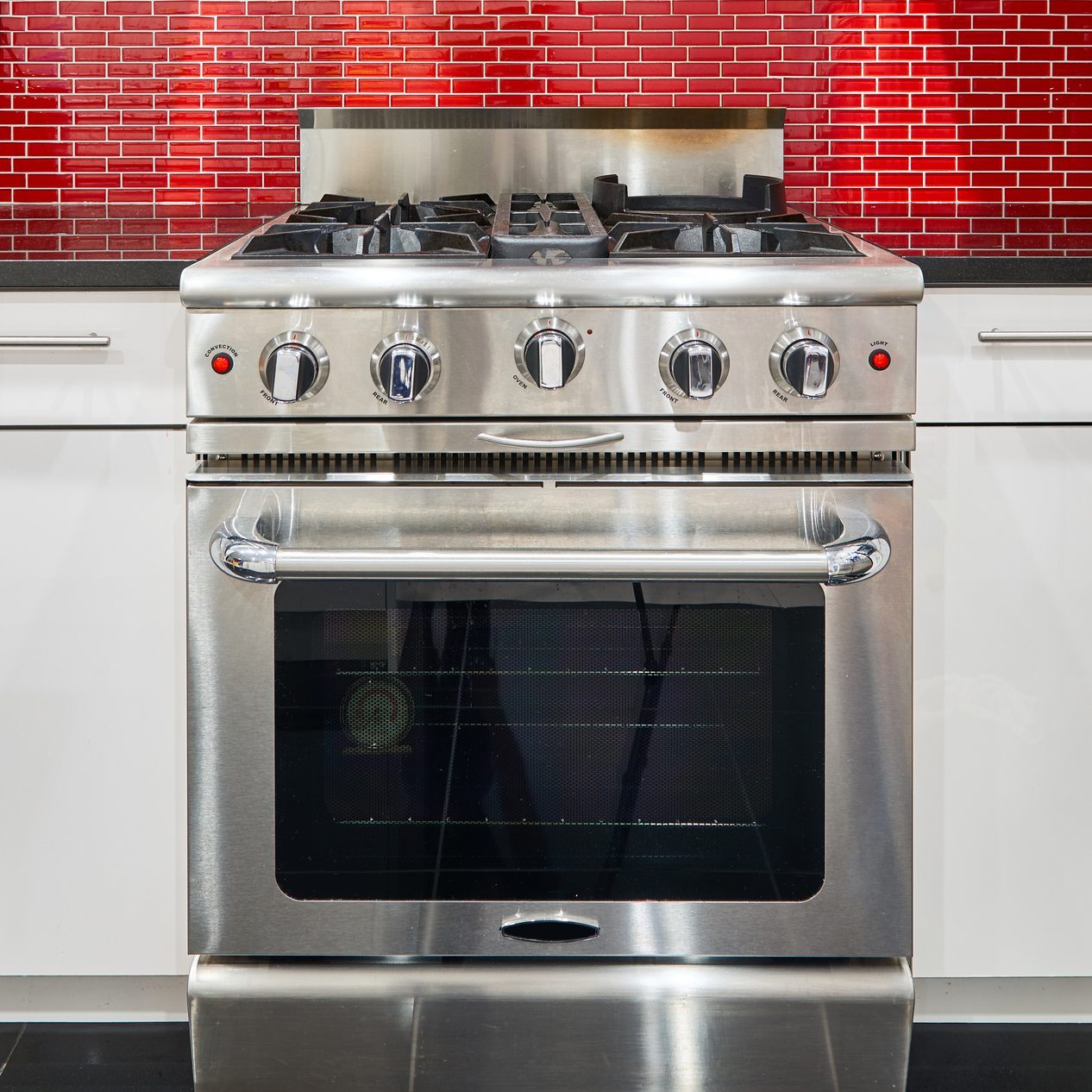Introduction

Introduction: Self-cleaning ovens have become a popular and convenient feature in modern kitchens. However, there are several myths surrounding the safety of these appliances. In this article, we will debunk these myths and provide factual information about the safety of self-cleaning ovens. It is important to understand the process and potential dangers of neglected oven cleaning to ensure a clean and hygienic cooking environment. By dispelling these common misconceptions, we aim to promote proper maintenance and cleaning practices for a healthier and safer kitchen experience.
The Importance Of Oven Cleaning And Debunking Common Myths
Regular oven cleaning is crucial for maintaining a safe and hygienic cooking environment. It helps prevent the buildup of food residue, grease, and bacteria that can affect the taste of your food and pose health risks. Despite the benefits, there are common myths surrounding oven cleaning that need to be debunked. These include the misconception that self-cleaning ovens release toxic fumes and that commercial oven cleaners are harmful. Understanding the facts and dispelling these myths promotes the use of safe and effective cleaning methods, ensuring a healthier and safer kitchen experience.
The Potential Dangers Of Neglecting Oven Cleaning
Neglecting oven cleaning can have serious consequences for both your health and the functionality of your appliance. Without regular cleaning, food residue and grease can accumulate, increasing the risk of bacterial growth, cross-contamination, and unpleasant odors. Additionally, the buildup of leftover food can lead to uneven heating and decreased cooking efficiency. Over time, neglected oven cleaning can result in smoke, excessive carbonization, and even potential fire hazards. It is important to prioritize regular cleaning to maintain a safe and hygienic cooking environment.
Myth 1: Oven Self-cleaning Cycle Can Release Toxic Fumes

During the self-cleaning cycle, there is a common myth that toxic fumes are released, posing a risk to human and pet health. However, this is not true. The self-cleaning process in ovens involves heating the oven to high temperatures to burn off food residues. While there may be a slight odor during this process, it is not harmful and dissipates quickly. Ovens are designed to safely handle the self-cleaning cycle, and as long as the oven is properly ventilated, there is no need to worry about toxic fume release.
Understanding The Self-cleaning Cycle Process
During the self-cleaning cycle, the oven heats up to extremely high temperatures, typically between 800 to 900 degrees Fahrenheit. This intense heat helps to burn off any food residues and grease that may have accumulated in the oven. The self-cleaning cycle usually lasts for a few hours, during which time the oven locks itself to prevent any accidents. The high temperatures effectively turn any food residue into ash, making it easy to wipe away once the cleaning cycle is complete. It’s important to note that the oven’s insulation and design are specifically engineered to handle these high temperatures safely.
Dispelling The Myth Of Toxic Fume Release During Self-cleaning
During the self-cleaning cycle, the oven reaches high temperatures that can cause food residues and grease to turn into ash. This process does not release toxic fumes that can be harmful or fatal. As long as the oven is properly ventilated, there is no significant health risk associated with using a self-cleaning oven. The insulation and design of modern ovens are specifically engineered to handle these high temperatures safely. It’s important to dispel the myth that self-cleaning ovens release toxic fumes and understand the safe and effective nature of this cleaning process.
Myth 2: Using Commercial Oven Cleaners Is Harmful

There is a misconception that using commercial oven cleaners can be harmful to your health. However, this is not entirely true. Commercial oven cleaners are formulated with chemicals that are designed to dissolve tough grease and stains. While some of these chemicals can be harsh, they are generally safe if used properly. It is important to follow the manufacturer’s instructions and wear protective gloves and eyewear when using these cleaners. Additionally, it is recommended to thoroughly rinse the oven after cleaning to remove any residual chemicals. Used responsibly, commercial oven cleaners can be an effective and safe option for keeping your oven clean and free of grease buildup.
Different Types Of Oven Cleaners And Their Ingredients
There are various types of oven cleaners available in the market, each with its own set of ingredients. Some common types include spray-on cleaners, foam cleaners, and paste cleaners. Spray-on cleaners usually contain a combination of surfactants and solvents to loosen and remove grease and stains. Foam cleaners have a thick, foamy consistency that adheres to the oven surface, and they often contain alkalis to break down tough grime. Paste cleaners typically contain abrasive agents like baking soda or pumice, which provide a scrubbing action to remove stubborn buildup. It is important to read the labels and choose a cleaner suitable for your oven’s surface and your cleaning preferences.
Fact-checking The Safety Of Commercial Oven Cleaners
When it comes to commercial oven cleaners, many people have concerns about their safety. However, it is important to note that these products undergo rigorous testing and must meet strict safety standards before they are released into the market.
Commercial oven cleaners are designed to be effective at removing tough grease and grime, and they are generally safe to use when used according to the instructions provided. It is important to follow the safety precautions outlined on the product label, such as wearing gloves and ensuring proper ventilation.
While commercial oven cleaners may contain chemicals, they are formulated to be safe when used as directed. It is always recommended to read and follow the manufacturer’s instructions carefully to ensure the safe and effective use of these products.
In summary, when used correctly and with proper precautions, commercial oven cleaners are generally safe to use. It is important to choose a cleaner that is suitable for your oven’s surface and to follow the instructions provided to ensure optimal results and safety.
The Real Dangers Of Neglected Oven Cleaning

Neglecting oven cleaning can lead to several real dangers. One of the primary concerns is the buildup of food residue, grease, and grime, which can affect the taste and quality of your cooked food. Additionally, the accumulation of these substances can increase the risk of fire hazards. The residue can also emit unpleasant odors and smoke during cooking, compromising the air quality in your kitchen. Furthermore, neglected oven cleaning can harbor bacteria and pests, creating an unsanitary environment. Regular cleaning and maintenance are crucial to avoid these potential dangers and ensure a safe and healthy cooking experience.
Food Residue Buildup And Its Consequences
Neglected oven cleaning often leads to the accumulation of food residue, grease, and grime. This build-up can have significant consequences for the taste and quality of your cooked food. The residual food particles can burn and stick to your dishes, resulting in unpleasant flavors. Moreover, the accumulation of food residue can create an ideal breeding ground for bacteria and pests, compromising the cleanliness and hygiene of your kitchen. Regular cleaning is essential to prevent these consequences and ensure a safe and enjoyable cooking experience.
Health Risks Associated With Neglected Oven Cleaning
Neglected oven cleaning can pose several health risks. The accumulation of food residue and grease can lead to the growth of harmful bacteria and pests, compromising the cleanliness and hygiene of your kitchen. Inhaling the fumes released from burned food particles can irritate the respiratory system and trigger allergies or asthma symptoms. Additionally, if the residue comes into contact with your cooked food, it can contaminate it and lead to foodborne illnesses. Regularly cleaning your oven is crucial to maintain a safe and healthy cooking environment for you and your family.
Safe And Effective Oven Cleaning Methods

When it comes to cleaning your oven, there are safe and effective methods that can help maintain its cleanliness and functionality. Here are some recommended methods:
- Natural cleaning alternatives: Instead of relying on harsh chemicals, opt for natural alternatives such as baking soda and vinegar. These substances can work wonders in removing grease and grime without the risk of chemical residue.
- Proper maintenance and cleaning practices: Regularly wipe down the interior of the oven with a damp cloth or sponge to prevent buildup. Use a non-abrasive scrub brush or scraper for stubborn stains. Remember to remove and clean the oven racks separately.
By following these safe and effective cleaning methods, you can ensure a clean and hygienic oven for your cooking needs.
Natural Cleaning Alternatives For A Healthier Option
One safer and healthier option for cleaning your oven is to use natural alternatives instead of harsh chemicals. Baking soda and vinegar are two common household items that can work wonders in removing grease and grime. Baking soda can be sprinkled on the surfaces, while vinegar can be sprayed and left to sit for a few minutes before wiping away. These natural agents are effective at breaking down dirt and grime without leaving behind any chemical residue. Additionally, they are non-toxic and safe for you and your family. So, consider using natural cleaning alternatives for a healthier and eco-friendly approach to oven maintenance.
Proper Maintenance And Cleaning Practices
Proper maintenance and cleaning practices are essential for ensuring the longevity and efficiency of your oven. Regularly wiping down the oven’s interior and exterior surfaces with a damp cloth helps to prevent the buildup of dirt and grime. Avoid using abrasive cleaners or scrub brushes that can damage the oven’s finish. It is also important to regularly clean the oven racks and trays using warm, soapy water or a vinegar-water solution. Additionally, scheduling professional oven maintenance at least once a year can help identify and address any potential issues before they become major problems. By following these practices, you can keep your oven clean, safe, and in optimal working condition.
Conclusion

In conclusion, regular oven cleaning is essential for maintaining a safe and efficient kitchen environment. By debunking the common myths surrounding self-cleaning ovens, it is clear that they pose no severe health risks when used correctly. Following the manufacturer’s instructions, ensuring proper ventilation, and using safe cleaning methods can prevent any potential harm from oven cleaning. Neglecting oven cleaning can lead to food residue buildup and health risks. Therefore, it is crucial to prioritize oven maintenance and adopt safe and effective cleaning practices to promote a healthier and safer cooking experience.
The Importance Of Regular Oven Cleaning
Regular oven cleaning is essential for maintaining a safe and efficient kitchen environment. Neglecting oven cleaning can lead to a buildup of food residue, grease, and grime, which can not only affect the taste and quality of your food but also pose health risks. Bacteria and germs can thrive in dirty ovens, potentially contaminating your meals and causing illness. Additionally, a dirty oven can hinder its performance and lead to uneven cooking or temperature fluctuations. By prioritizing regular oven cleaning, you can ensure a healthier and safer cooking experience for you and your family.
Debunking Common Myths To Promote Safe And Effective Oven Maintenance
Regular oven maintenance is crucial for a safe and efficient kitchen environment. To ensure proper oven care, it is important to debunk common myths surrounding oven cleaning. One such myth is that self-cleaning ovens are not effective at removing baked-on grease and residues. However, self-cleaning cycles can effectively clean the oven interior. Additionally, commercial oven cleaners are often deemed harmful, but when used correctly and according to instructions, they are safe and effective. By debunking these myths, individuals can feel confident in their oven cleaning practices and maintain a clean and healthy cooking space.
Frequently Asked Questions about Self-Cleaning Ovens: Can They Kill You?
Q: Can a self-cleaning oven pose any safety risks to humans?
A: While self-cleaning ovens are generally safe to use, they do emit some potentially harmful fumes during the cleaning process. However, if used correctly and in a well-ventilated area, the risks can be minimized.
Q: What kind of fumes are released during the self-cleaning cycle?
A: Self-cleaning ovens release fumes primarily as a result of the high temperatures used to burn off food particles and grease. The fumes consist of carbon monoxide and various volatile organic compounds (VOCs). Exposure to these fumes can potentially lead to health issues.
Q: Can exposure to these fumes be fatal?
A: It is highly unlikely that exposure to the fumes from a self-cleaning oven would be fatal. However, repeated or prolonged exposure to these fumes can cause symptoms such as headaches, dizziness, nausea, and respiratory irritation.
Q: How can I minimize the risks associated with using a self-cleaning oven?
A: To minimize the risks, ensure your oven is well-ventilated by opening windows or using exhaust fans. It is also important to follow the manufacturer’s instructions for operating the self-cleaning feature and to remove any pets from the area during the cleaning cycle.
Q: Are there any precautions I should take before starting the self-cleaning cycle?
A: It is important to remove any large food debris or grease from the oven before initiating the self-cleaning cycle. Additionally, remove any items such as aluminum foil or oven liners that may emit toxic gases or become damaged during the cleaning process.
Q: How long does the self-cleaning cycle typically last?
A: The duration of the self-cleaning cycle can vary between oven models but usually takes around 2 to 4 hours. It is important to allow additional time for the oven to cool down once the cleaning cycle is complete.
Q: Is there an alternative to self-cleaning ovens that is safer?
A: For individuals with respiratory conditions or concerns about exposure to fumes, using non-toxic, eco-friendly oven cleaners or opting for manual oven cleaning methods may be a safer alternative.
Q: Can using a self-cleaning oven replace regular manual cleaning?
A: While self-cleaning ovens can remove a significant amount of built-up debris, it is still recommended to regularly clean your oven manually. This will help maintain its condition, prevent excessive buildup, and extend its lifespan.
Q: Are self-cleaning ovens safe for use in households with children?
A: Self-cleaning ovens can be used in households with children as long as appropriate precautions are taken. Ensure that children are supervised and kept away from the oven during the cleaning cycle to prevent any accidents.
Remember, it is always important to read the manufacturer’s instructions and follow proper safety guidelines when using any household appliance, including self-cleaning ovens.

From At-Home Dinner Parties to Family Reunions to Office Parties, we can cater your next Event!